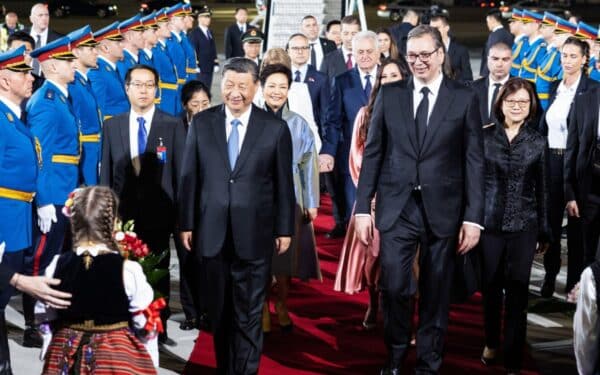The votes have finally been counted, and young Hong Kongers are celebrating in the streets after a wave of successes for anti-Beijing candidates.
These were the first council elections since the “Umbrella Revolution” of October 2014, in which students braved armed riot police, pepper spray, and the wrath of the Chinese government to protest legislative restrictions on electing leaders that would tighten Beijing’s grip on Hong Kong. Traffic in key areas was shut down for 79 days, and nearly a thousand people were arrested. But the limits on who could stand to be Hong Kong’s Chief Executive in 2017, which required candidates to be pre-screened by a nominating committee in Beijing, remained, leading some to consider the Umbrella Revolution a failure.
Fast forward two years, and the aftershocks of the movement are still reverberating. A record 58 percent turned out to vote in the Legislative Council (LegCo) elections, and now the results are in, the challenge to the establishment is clear. LegCo has long been a pro-Beijing force, but although the majority of the 70 seats will still be held by China-backers, the pan-democracy faction has more than the one-third minority it needs to exert veto power and challenge Chinese control. In addition, a new generation of localist representatives has been elected to office, some of whom have even ousted prominent pan-democratic members who have been involved in Hong Kong politics for decades.
These include eight candidates from a range of new parties that sprung from the Umbrella Movement – Youngspiration, Demosisto, Democracy Groundwork. Youngspiration founder Sixtus “Baggio” Leung Chung-hang has a seat, as does student leader Nathan Law Kwun-chung, who is just 23, and underdog candidate Lau Siu-lai, who only began her campaign three months ago. Prominent social activist Eddie Chu Hoi-dick won 84,121 votes – the most of any candidate. These young reactionaries will be a far greater headache for Beijing than the pro-democratics moderates they replace. Their aim is not just to challenge China’s influence over Hong Kong, but to place independence on the agenda.
China could have prevented all of this. Nineteen years ago, when the UK handed the island over to Chinese rule, there was confidence that Hong Kong – which is one of the greatest prosperity success stories in history – would encourage openness and political freedom on the mainland. As Keith B. Richburg wrote for Nikkei this morning, Chinese leaders had “two decades to imbue a sense of patriotism and make Hong Kong’s young people feel that their unique status living in China’s freest, richest city would be protected and preserved.”
Instead, Beijing’s grip has become ever-tighter, clamping down on Hong Kong’s autonomy and attempting to subsume the local diversity into China’s culture of conformity. It has endeavoured to infringe on the political rights of Hong Kongers, from demanding to pre-screen Chief Executives candidates, to barring localist activists from standing for election if they did not sign a form confirming their belief that Hong Kong was an inalienable part of China.
Last night, that campaign backfired. Hong Kong’s pro-democratic forces have a long way to go, and there will be many battles to come, especially as China continues to flex its muscles in South China Sea and beyond. But the election of the new LegCo members represents a victory for those who have been involved in the struggle for autonomy that has been playing out on Hong Kong’s streets. China has made its intentions clear; now Hong Kong is fighting back.



